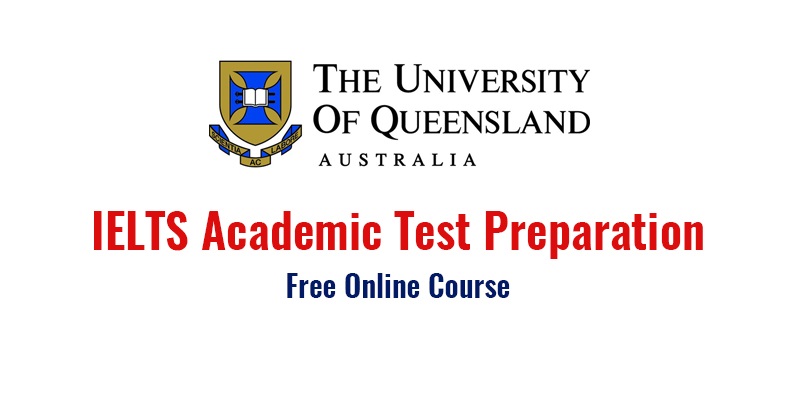IELTS Academic Test Preparation from Queensland University
IELTS Academic Test Preparation from Queensland University
About The University of Queensland
The University of Queensland (UQ), Australia, is one of the world’s premier teaching and research institutions. Striving for excellence through the creation, preservation, transfer and application of knowledge UQ ranks in the top 50 Universities as measured by the QS World University Rankings. UQ is one of only three Australian members of the global Universitas 21 and a founding member of the Group of Eight (Go8) universities. UQ is recognised for its world standard specialised research and teaching excellence; having won more Australian Awards for University Teaching than any other in the country.
Founded in 1909 UQ is Queensland’s oldest university and has produced more than 250,000 graduates. UQ has a diverse community of over 51,000 students including 13,300 international students from 141 nations. It has one of Australia’s largest PhD enrolments, with more than 14,700 postgraduate students. UQ employs 6,700 staff spanning six faculties and eight research institutes.
About this course:
IELTS is the world’s most popular English language test for those wanting to study in higher education in an English-speaking country.
This IELTS course will prepare you to take the IELTS Academic tests with confidence.
You will have immediate access to over 80 hours of interactive practice materials covering each of the four skills: listening, speaking, reading and writing.
This innovative preparation course has been designed and written by experienced English teaching professionals from The University of Queensland, an IELTS testing Centre and one of the world’s leading centers of learning.
About the course writers:
All of the course writers have extensive experience enabling students to reach their academic IELTS goal of entering a university where English is the primary language.
Each section of this course includes engaging multi-media presentations reviewing key test-taking skills, strategies and techniques.
What you’ll learn?
- Learn about the IELTS test procedure and format.
- Learn useful test-taking strategies and skills for the IELTS Academic tests.
- Develop your English reading, writing, listening and speaking skills.
Syllabus:
Module 1: Listening
The module begins with an overview of the IELTS Listening Test and what it includes.
Following this, we’ll show you the differences between each section of the IELTS Listening Test and the types of questions you will need to answer.
You will also have opportunities to practice these types of questions and gain the skills that you need.
Module 2: Speaking
This module outlines the different features of the Speaking Test.
In preparation for Part 1 of the Speaking Test, we focus on some of the grammar that you can use to talk about your likes and dislikes.
For Part 2 of the test, we’ll then focus on the “Individual Long Turn”.
For Part 3 of the test, we will focus on “The Discussion”.
You’ll learn to develop vocabulary related to common Part 3 topics and also some of the common grammar features you need for success in the discussion.
Module 3: Reading
This module begins with an overview of the IELTS Reading Test and what it includes.
This will give you important information about what the test is designed to assess and the different question types used in the test.
There will be opportunities to practice the skills you have learned.
Module 4: Writing
The module begins with an overview of the IELTS Writing Test and what it includes.
How to write tasks:
Task one:
We’ll then look at the two tasks involved in the test. In preparation for Task 1, you’ll learn how to identify different types of visuals, identify and describe the topic and the main features of these visuals, and also how to write an overview paragraph to summarize the key information.
You’ll learn about what language to use to describe data, as well as how to select and group information. We’ll also look at the language used for ordering ideas in paragraphs.
Task tow:
In preparation for Task 2, we’re going to take a closer look at the essay question to help you answer all its parts and we will examine ways of planning and organizing your essay.
We’ll also analyze the different parts of an IELTS essay, look in more detail at some possible task types in Task 2, and explain how they are assessed. We’ll then look at how to write a good essay with good structure and appropriate language.
Finally:
Along the way, you’ll have a chance to practice writing an introduction, body paragraphs and conclusion and submit these for assessment from other IELTSx students.
Instructors
Mr. Iain Mathieson
Martin Dutton
Dr. Megan Yucel
Assistant Director: Stephen Walker
University of Queensland, ICTE


